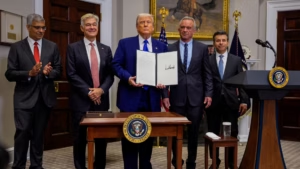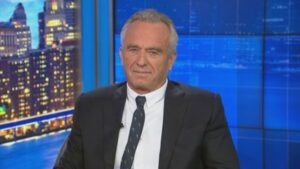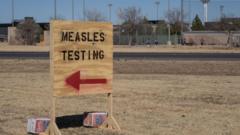The Health and Human Services Secretary, Robert F. Kennedy Jr., is reportedly taking steps towards a nationwide ban on television advertisements for pharmaceuticals. This controversial initiative aims to align the U.S. with many countries that already prohibit direct-to-consumer drug advertising, a move Kennedy argues is necessary to counter Big Pharma's stronghold on public health narratives and media.
Push for Nationwide Ban on Pharma Ads by HHS Secretary Sparks Controversy

Push for Nationwide Ban on Pharma Ads by HHS Secretary Sparks Controversy
HHS Secretary Robert F. Kennedy Jr. is advocating for a significant ban on pharmaceutical ads, potentially altering media landscape in the U.S.
Political commentator Liz Wheeler emphasized that such a ban could have two profound effects on the media industry. Firstly, she asserted that mainstream media relies heavily on pharmaceutical advertising dollars, which could lead to major setbacks for networks, including massive layoffs, anchor firings, or even closure. Secondly, Wheeler suggested the ban might pave the way for more authentic reporting, breaking through the wall of corporate influence that limits coverage on pharmaceutical corruption, vaccine controversies, and the affiliations between medical regulatory bodies such as the CDC and FDA.
Wheeler characterized current media practices as a “money laundering scheme” designed to suppress negative coverage of the pharmaceutical industry. If Kennedy's objectives come to fruition, they could reveal the intimate connections between corporate media and Big Pharma, also potentially launching the public into a new era of investigative journalism that was previously stifled.
Wheeler characterized current media practices as a “money laundering scheme” designed to suppress negative coverage of the pharmaceutical industry. If Kennedy's objectives come to fruition, they could reveal the intimate connections between corporate media and Big Pharma, also potentially launching the public into a new era of investigative journalism that was previously stifled.





















